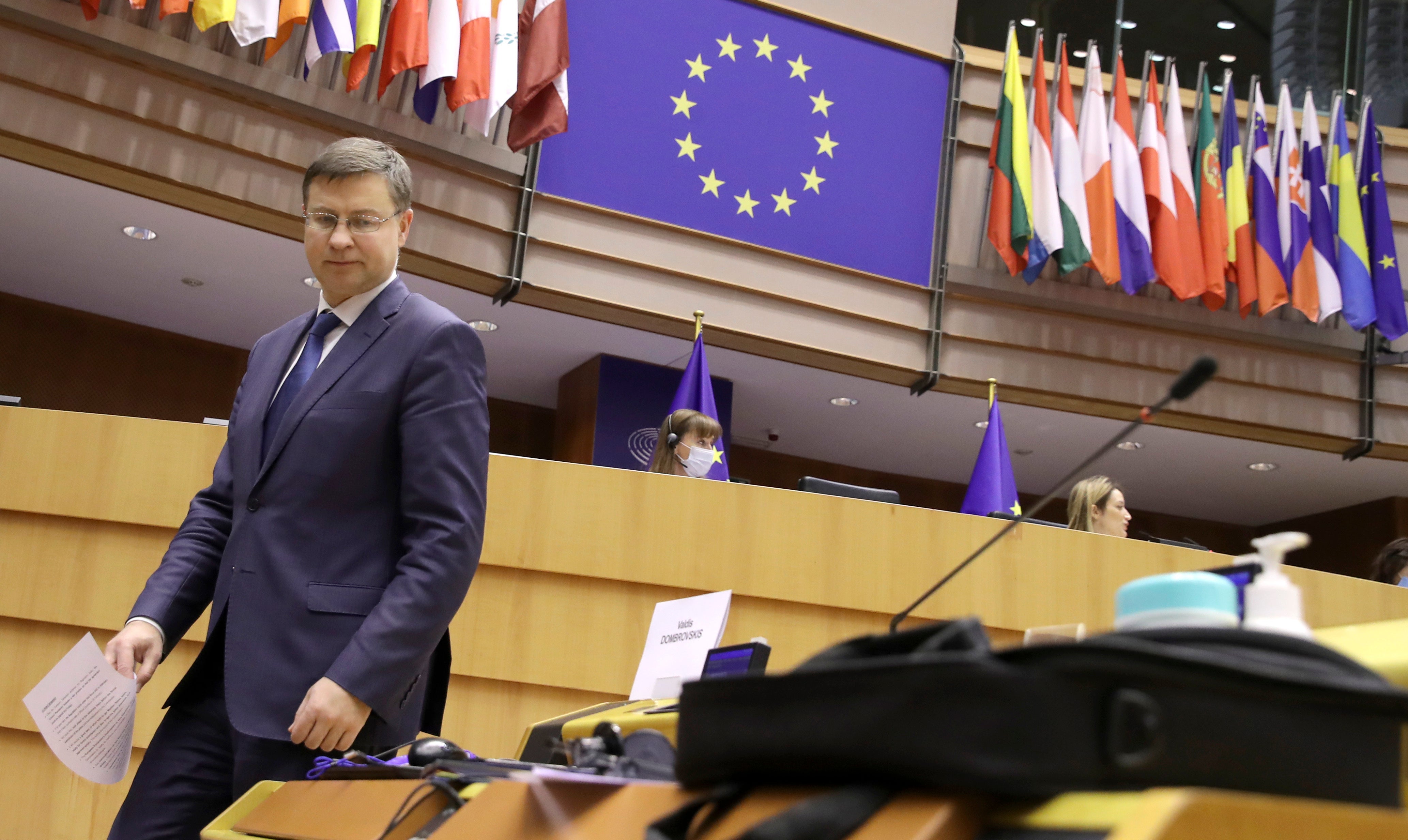EU lawmakers OK $815 billion recovery program
European Union lawmakers have approved a 672.5 billion euro ($815 billion) recovery package of loans and grants to help member nations recover from the coronavirus pandemic

Your support helps us to tell the story
From reproductive rights to climate change to Big Tech, The Independent is on the ground when the story is developing. Whether it's investigating the financials of Elon Musk's pro-Trump PAC or producing our latest documentary, 'The A Word', which shines a light on the American women fighting for reproductive rights, we know how important it is to parse out the facts from the messaging.
At such a critical moment in US history, we need reporters on the ground. Your donation allows us to keep sending journalists to speak to both sides of the story.
The Independent is trusted by Americans across the entire political spectrum. And unlike many other quality news outlets, we choose not to lock Americans out of our reporting and analysis with paywalls. We believe quality journalism should be available to everyone, paid for by those who can afford it.
Your support makes all the difference.European Union lawmakers on Wednesday approved a 672.5 billion euro ($815 billion) recovery package of loans and grants to help member nations recover more quickly from the coronavirus pandemic but countries will not receive the money for several months.
The European Parliament voted 582-40, with 69 abstentions, in favor of the regulation for the Recovery and Resilience Facility, the central pillar of the the bloc’s 750 billion euro ($910 billion) recovery plan. The leaders of the EU's 27 nations adopted the RRF last year.
To receive their share of the money, which is linked to respecting the rule of law, EU members must submit their plans for the funds by the end of April. Each plan has to have at least 37% of its budget dedicated to fighting climate change and at least 20% to improving digital transformation and other actions.
“In the long-term, this money is going to bring about change and progress to meet our digital and climate goals,” Eider Gardiazabal Rubial, a lawmaker closely involved in the negotiations, said. “We will ensure that the measures will alleviate poverty and unemployment, and will take into account the gender dimension of this crisis. Our health systems will also become more resilient.”
So far, 18 nations have submitted their draft plans to the European Commission, which is in charge of assessing them.
Once evaluated by the EU's executive arm, plans are to be approved on a case by case basis by the European Council, which represents the governments of the 27 individual member countries.
The funding will be available for three years and EU countries can request up to 13% pre-financing for their recovery and resilience plans. Subsequent disbursements will depend on whether targets set out in the plans are achieved.
Once a proposal allowing the European Commission to borrow on financial markets is ratified by all member nations, the commission expects the first recovery fund payments could be made from mid-2021.
___
Follow all AP stories on the coronavirus pandemic at https://apnews.com/hub/coronavirus-pandemic.
___
Follow all AP stories on fighting climate change at https://apnews.com/hub/climate.